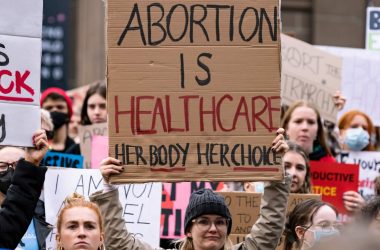WASHINGTON–(ENEWSPF)–September 24, 2013. The President’s health care law imposes a number of new taxes on American businesses and individuals that will drain money from Americans’ pocketbooks. Among the many taxes and fees imposed by Obamacare is an annual fee levied on health insurance providers which is estimated to take more than $100 billion out of the economy by 2022. Yet despite this staggering figure, the Administration did not conduct a study of the effects of the health insurance premium tax on the economy. U.S. Senator Mark Kirk (R-Ill.) joined Senator Mike Enzi (R-Wyo.) and U.S. Rep. Erik Paulsen (R-Minn.) and other Senate and House colleagues in asking how $100 billion in taxes can be considered economically “insignificant.” Today, they sent a letter to Secretary of the Treasury Jack Lew and Acting Commissioner of the IRS Daniel Werfel asking for a detailed explanation on how the Administration made that determination in light of a recent Executive Order requiring a study and economic analysis for any rule with potential costs in excess of $100 million.
In the letter, the lawmakers wrote that “in assessing the economic impact of this tax, the collection figure alone does not convey the whole story. As the Congressional Budget Office has pointed out, this tax ‘would be largely passed through to consumers in the form of higher premiums for private coverage.’ In addition, unlike most business expenses, this tax is non-deductible for insurers, which will further incentivize insurers to increase beneficiary premiums to offset the additional tax burden. This further increase in premiums will hit small businesses and individuals hardest.
“The National Federation of Independent Business estimates that at least 146,000 jobs will be lost and families will pay an additional $5,140 in premiums by 2022 as a result of this pass-through tax,” the letter continues. “Thanks to the way the premium tax is structured in the law, these premium increases will generate increased tax penalties, which will repeat the vicious cycle of tax increases and pass-through costs.”
Kirk, Enzi and Paulsen also stressed that there are negative economic impacts on states that are not being accounted for. Noting that “Since Medicaid managed care plans are not exempt from this tax, plan sponsors will also likely pass along the increased costs imposed by this tax to the states, once again resulting in higher premiums for state Medicaid plans. As a result, the fiscal strain on many states will be further exacerbated by the downstream cost of this new tax. Other services will be sacrificed to account for these costs, which will create further economic uncertainty.”
Today’s letter was also signed by Senators Lamar Alexander (R-Tenn.), Orrin Hatch (R-Utah), Pat Roberts (R-Kan.), John Thune (R-S.D.), Johnny Isakson (R-Ga.), Tim Scott (R-S.C.), John Barrasso (R-Wyo.).
The text of the letter is included here.
Source: kirk.senate.gov








